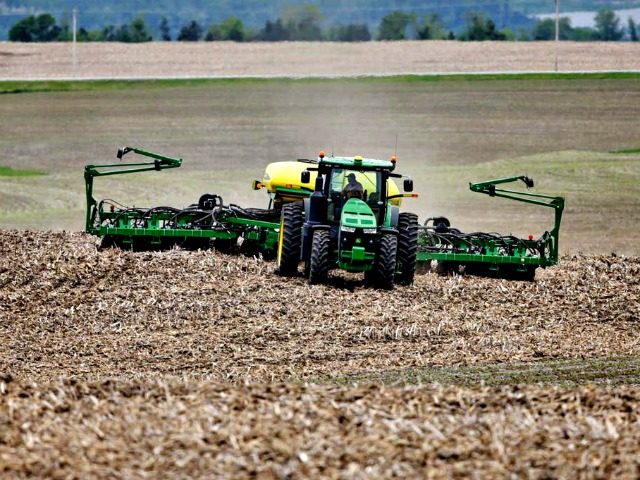Year after year, big agriculture tells us they are facing labor shortages on their farms. Their lobbyists bemoan the lack of available labor and claim that Americans won’t do the work, and those who do are too lazy to stay through the full season. They’re even saying this at a time when 22 million American workers are now unemployed due to the coronavirus crisis.
Big agriculture has access to an unlimited number of foreign guestworkers through the H-2A program, but even that is not enough. They still insist on hiring illegal aliens, who make up as much as 70 percent of our country’s farmhands.
So, what can we do to fix this? Big agriculture tells us we need a different unlimited guestworker program, even though the H-2A already works. They also tell us we need to give every illegal farmworker legal status and a pathway to citizenship. This is particularly true of fruits and some vegetables, which still rely on the 17th-century approach of harvesting of these crops by hand. What is to be done?
The answer is right in front of us. Since the early 1990s, many farmers harvesting corn, soybeans, wheat, and other grains rely on self-driving tractors and robotic tillers. Technology is rapidly evolving to meet the needs of modern farming. Our friends in Europe already know this – the European Union continues to advocate for “precision agriculture,” which they predict will save costs, reduce the environmental impact of farming, and produce more and better food. Why has the United States not followed suit?
Automation is the future of farming. Better yet, automation in agriculture will eliminate the need for foreign guestworkers and simultaneously increase wages for American farmers.
That sounds too good to be true – most people associate automation with the elimination of jobs entirely. And indeed it would eliminate scores of jobs, namely those that are currently filled by illegal aliens and unnecessary foreign guestworkers. This would not be a bad thing. We do not need to rely on illegal aliens and expensive and ethically questionable guestworker programs just to harvest our fruits and vegetables.
Automation would eliminate many low-skilled jobs on farms and free farmers from the oscillations of the labor market. It would also create new high-paying jobs in the field of STEM agriculture. Laugh all you want, but these programs already exist at universities across the country. There, students are engineering the next wave of farm technologies. When these labor-saving products go to the farms, someone will have to run them. That job will fall to Americans, not unskilled guestworkers.
As automation becomes the norm on farms across the country, it requires people with more technical experience to run the day-to-day operations. Turning to automation is going to have two broad effects: it will eliminate the need for everyday ag labor like pickers, while it will increase the need for highly-specialized and skilled machine and tech operators. This is where we will see American opportunities and wages rise, as American STEM graduates and workers develop these automation technologies and then go to work installing, implementing, and them.
This process will not happen overnight. It will take time to develop and implement labor-saving technology in the majority of American farms. Indeed, Congress may need to look closely at subsidizing the development of these machines. More likely, they may have to subsidize the purchasing of this technology so that farmers do not go broke trying to upgrade their harvesting and shed their reliance on an uncertain workforce.
These measures may sound expensive, but companies across industries and sectors that chose to automate save millions of dollars a year. Farming would be no different. The United States federal government spent over $22 billion a year on agricultural subsidies in 2019. According to the Mises Institute, nearly 39 percent of the nation’s farms receive some form of subsidy from the government. The infrastructure to provide subsidies for automation and mechanization exists – it just takes political courage to begin.
Our turning to automation will not hurt American workers. In fact, it will enhance their power in the agricultural job market. Automation will replace cheap foreign guestworkers and illegal aliens with machinery and technology requiring a college degree – or significant vocational education – to operate. This is not a bad thing. This will spur continued research and focus onto our farms by American universities and researchers, whose graduates will take increasingly more complex technical jobs on farms in rural areas of the country – bringing capital with them.
Automating farmwork is the only way to promote food security for our future. All we need is a president and politicians with the political courage to pursue it.
Dan Stein is president at the Federation for American Immigration Reform

COMMENTS
Please let us know if you're having issues with commenting.